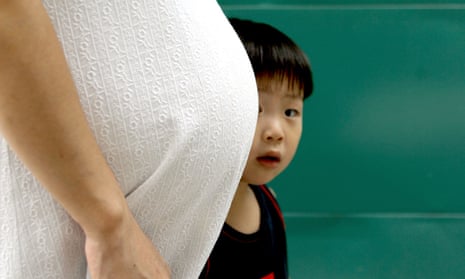A South Korean MP is attempting to overturn a centuries-old tradition in which every newborn baby turns one on the day they are born and two on the next New Year’s Day.
The unusual custom means a baby born on New Year’s Eve becomes two years old as soon as the clock strikes midnight.
When asked their age by a foreigner, many South Koreans give both their “Korean age” and “international age”, followed by an explanation that invariably leaves the questioner confused.
The system’s origins are unclear. One theory is that turning one year old at birth takes into account time spent in the womb – with nine months rounded up to 12. Others link it to an ancient Asian numerical system that did not have the concept of zero.
Explanations for the extra year added on 1 January are more complicated.
Some experts point to the theory that ancient Koreans placed their year of birth within the Chinese 60-year calendar cycle, but, at a time when there were no regular calendars, tended to ignore the day of their birth and simply added on a whole year on the first day of the lunar calendar. The extra year on 1 January became commonplace as more South Koreans began observing the western calendar.
Now, though, an MP is attempting to end the tradition, claiming that many of his compatriots fear it makes South Korea, Asia’s fourth-biggest economy and a global technology giant, appear out of step with the rest of the world.
“The biggest problem is that the legal age and the age used in everyday lives are different,” says Hwang Ju-hong, who recently introduced a bill that would require the government to use international ages in official documents and to encourage people to use them in everyday life.
“The international age is used in courts, hospitals and public offices, while the Korean age is used in people’s daily lives. The different calculation method causes a lot of confusion and inconvenience.”
Hwang, who claims to have widespread support among MPs and the public, said parents with babies born in December worry that their offspring will encounter problems when they mix with children who are physically older and bigger but, in Korean terms, are the same age.
“They worry about the possibility that their babies may be at a disadvantage at daycare centres because of their relatively small size,” he says, noting that China abolished its traditional age system during the Cultural Revolution, while Japan adopted international ages in the early 1900s. North Korea started using international ages in 1985.
The South Korean age system can be particularly disconcerting for the parents of children born late in the year. Kim Sun-mi, whose daughter was born on 30 December last year, said she preferred to give her child’s age in months while she was still very young.
“I think I’ll start using her Korean age when she grows up a bit,” Kim said. But she believes it is “absurd” that her daughter celebrated her second birthday only two days after she was born. “The Korean age system poses many disadvantages for babies that are born later in the year,” she said.
“I even saw some online posts about how some people plan their pregnancies so their babies won’t be born later in the year. Some people even ‘cheat’ by waiting to register their babies’ birth in January. I really hope the bill will pass.”
Not all South Koreans agree that the traditional calculation is anachronistic, arguing that it reflects the importance east Asian societies place on the lunar calendar, as opposed to the solar calendar observed in the west.
“Unifying the age calculation so it falls in line with the international age system would mean breaking with traditional ideas of time based on the lunar calendar,” said Jang Yoo-seung, a senior researcher at Dankook University’s Oriental Studies Research Centre.
“Some people say that it’s weird for babies born in December to turn two after just a few days, but it’s the same for international ages. A baby born today, and another who was born last year and is due to celebrate his or her birthday tomorrow, have birth dates that are almost 12 months apart, but they’re both ‘zero’ years old.
“Why can’t the Korean age and the international age system coexist, in the same way that the traditional lunar new year holiday and Christmas coexist?”
Seoul resident Kim Yun-soo, whose Korean age is 32, agrees that the change should not be enforced in a misguided attempt to imitate the west. “The Korean age system originates from recognising the time babies spend in their mother’s womb, which is part of Korea’s traditional culture,” he said.
“I’m not completely opposed to using the international age system, but I wonder if it’s necessary to impose it on people.”
Kyungmi Choi in Seoul and Associated Press contributed to this report
